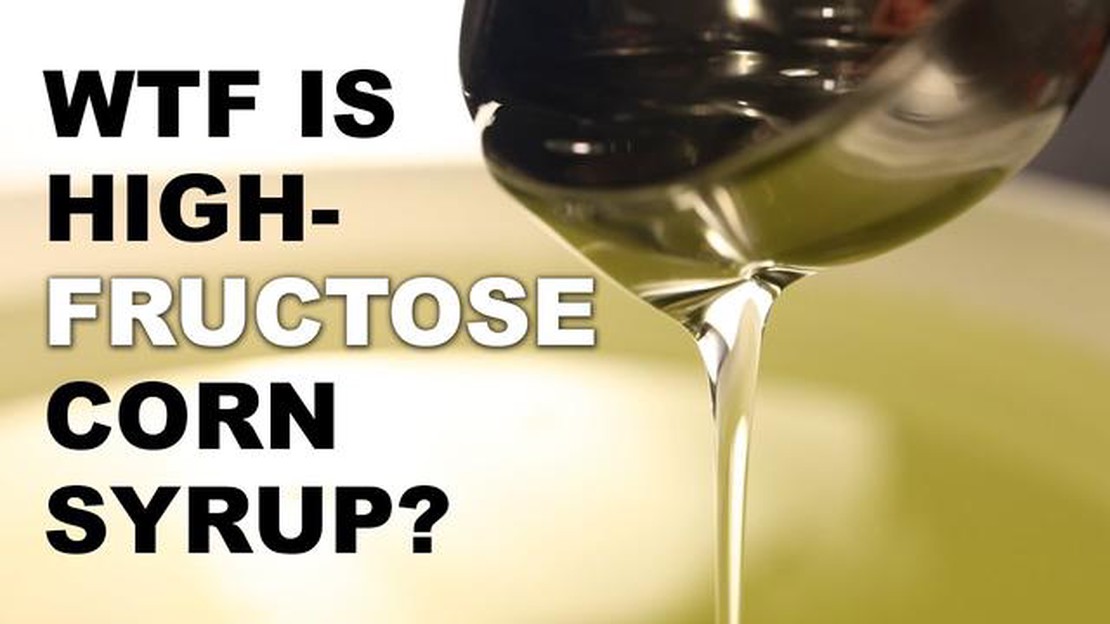7 Month Pitbull: Everything You Need to Know About This Growing Breed
7 Month Pitbull 7 Month Pitbull: Everything You Need to Know About This Growing Breed Table Of Contents Pitbull Puppies Growth: What to Expect …
Read Article
Corn syrup is a versatile ingredient that is commonly used in various food products. It is made by extracting the natural sugars from corn and is widely available on the market. Whether you’re a health-conscious individual or a culinary enthusiast, it’s important to have a good understanding of corn syrup and its benefits, uses, and potential side effects.
Benefits:
1. Sweetening Power: Corn syrup is known for its high sweetening power, making it a popular choice for sweetening various food and drinks.
2. Food Preservation: The natural sugars in corn syrup act as a preservative, extending the shelf life of many processed foods.
3. Enhances Flavor and Texture: Corn syrup has the ability to enhance the flavor and texture of baked goods, candies, and other desserts.
Uses:
1. Baking: Corn syrup is often used as a sweetener in baked goods like cookies, cakes, and pies, providing moisture and a desirable texture.
2. Food Production: Many processed foods, such as jams, jellies, and ice creams, use corn syrup as a key ingredient to enhance sweetness and improve stability.
3. Confectionery: Corn syrup is widely used in the production of candies, caramels, and other confectionery products due to its smooth texture and ability to prevent crystallization.
Side Effects:
1. Weight Gain: Consuming excessive amounts of corn syrup, like any other sweetener, can contribute to weight gain and increase the risk of obesity.
2. Dental Issues: Corn syrup is high in sugar, which can lead to tooth decay and other dental problems if proper oral hygiene is not maintained.
Read Also: How Much Pepcid Can I Give My 50 Lb Dog? Dosage Guidelines Explained
3. Blood Sugar Spikes: Individuals with diabetes or pre-diabetic conditions should monitor their corn syrup intake, as it can cause rapid increases in blood sugar levels.
Conclusion:
Read Also: A Dog Can Die From Seizures
While corn syrup offers various benefits, it’s important to consume it in moderation and be aware of its potential side effects. As with any food ingredient, it’s always best to consult with a healthcare professional or nutritionist to determine the optimal usage and intake based on your individual dietary needs.
Corn syrup, often used as a sweetener in a variety of food products, offers several benefits:
As with any food ingredient, moderation is key. It’s important to be aware of your overall sugar consumption and consider the potential health effects, especially if you have any dietary restrictions or conditions.
Corn syrup is a versatile ingredient that is used in a variety of ways in both sweet and savory dishes. Here are some of the common uses of corn syrup:
These are just a few examples of the many uses of corn syrup. Its versatility and wide range of applications make it a useful ingredient in various food products.
While corn syrup can be a sweet and convenient ingredient to use in various recipes and products, it is important to be aware of its potential side effects. Here are some common side effects associated with consuming corn syrup:
It is important to note that the side effects of consuming corn syrup can vary from person to person. Some individuals may be more sensitive to its effects than others. If you have any concerns about consuming corn syrup, it is best to consult with a healthcare professional or a registered dietitian.
Corn syrup is a sweetener made from corn starch. It is a thick, viscous liquid that is commonly used in food products as a sweetener and thickening agent.
Corn syrup can provide several benefits when used in moderation. It can enhance the flavor, texture, and shelf life of certain foods. It also helps to prevent crystallization in candies and can improve the moistness and tenderness of baked goods.
While corn syrup can provide some benefits in terms of enhancing food quality, it is important to note that it is a concentrated source of calories and contains no essential nutrients. Consuming too much corn syrup or other sweeteners can contribute to weight gain and an increased risk of certain health issues, such as obesity and type 2 diabetes.
Consuming excessive amounts of corn syrup can have negative effects on health. It can contribute to weight gain, increase the risk of obesity and type 2 diabetes, and have an impact on dental health. It is important to consume corn syrup and other sweeteners in moderation as part of a balanced diet.
7 Month Pitbull 7 Month Pitbull: Everything You Need to Know About This Growing Breed Table Of Contents Pitbull Puppies Growth: What to Expect …
Read ArticlePitbull Xxl Size There is something undeniably captivating about the Pitbull XXL size. These extra large pitbulls possess a power and magnificence …
Read ArticleDog Overdose On Xanax Is your dog showing signs of anxiety or stress? Xanax can help manage these symptoms, but it’s important to use this medication …
Read ArticleTaste Of The Wild Puppy Large Breed Introducing Taste Of The Wild Puppy Large Breed, the ultimate dog food for your growing pups. Made with the finest …
Read ArticleWhy Does My Dog Keep Coming Into My Room At Night Many dog owners have experienced the mysterious phenomenon of their furry friend sneaking into their …
Read ArticleCan Dogs Eat Frozen Bones As dog owners, it’s natural to want to provide our furry friends with a variety of foods to keep them happy and healthy. One …
Read Article